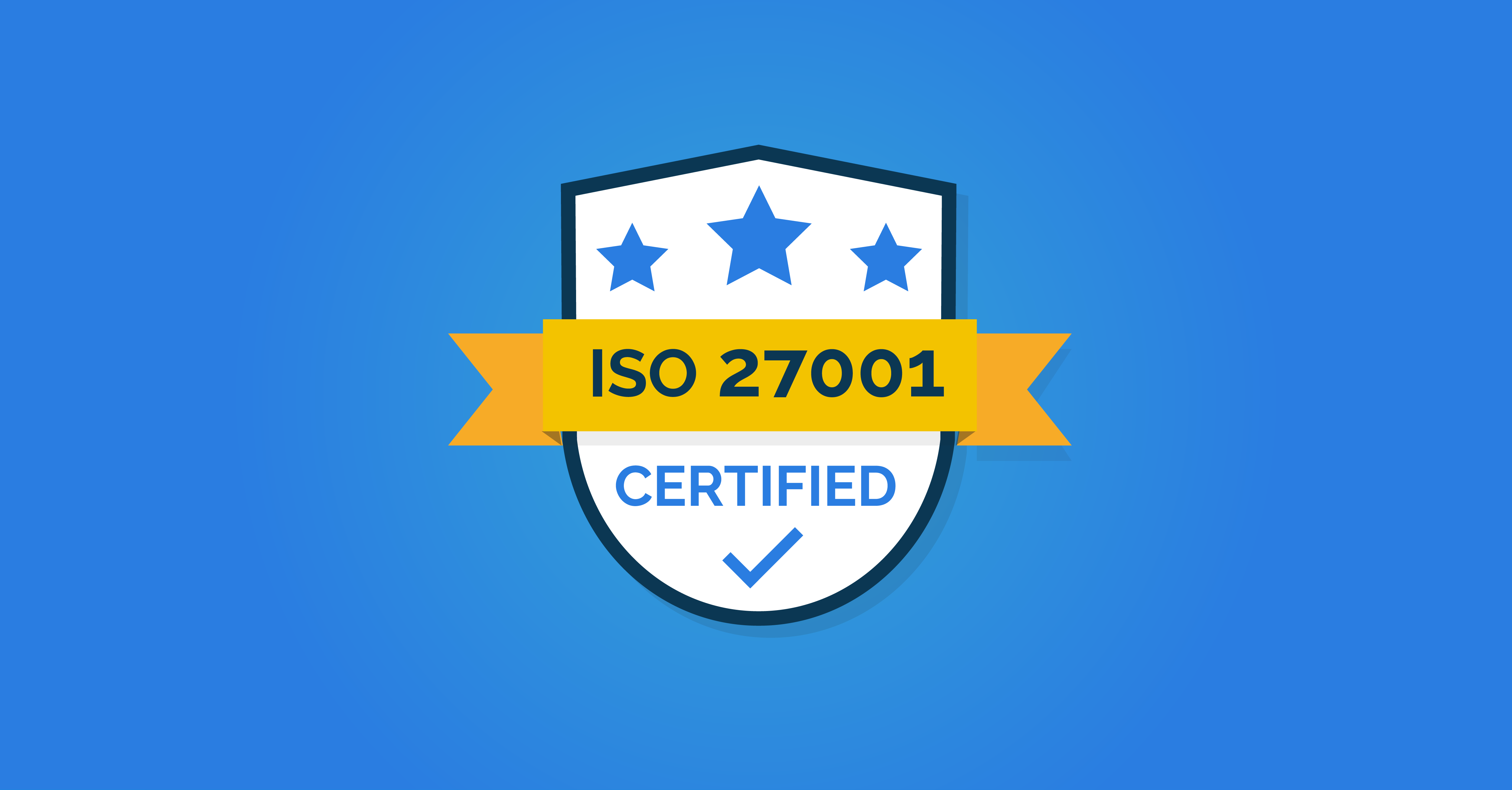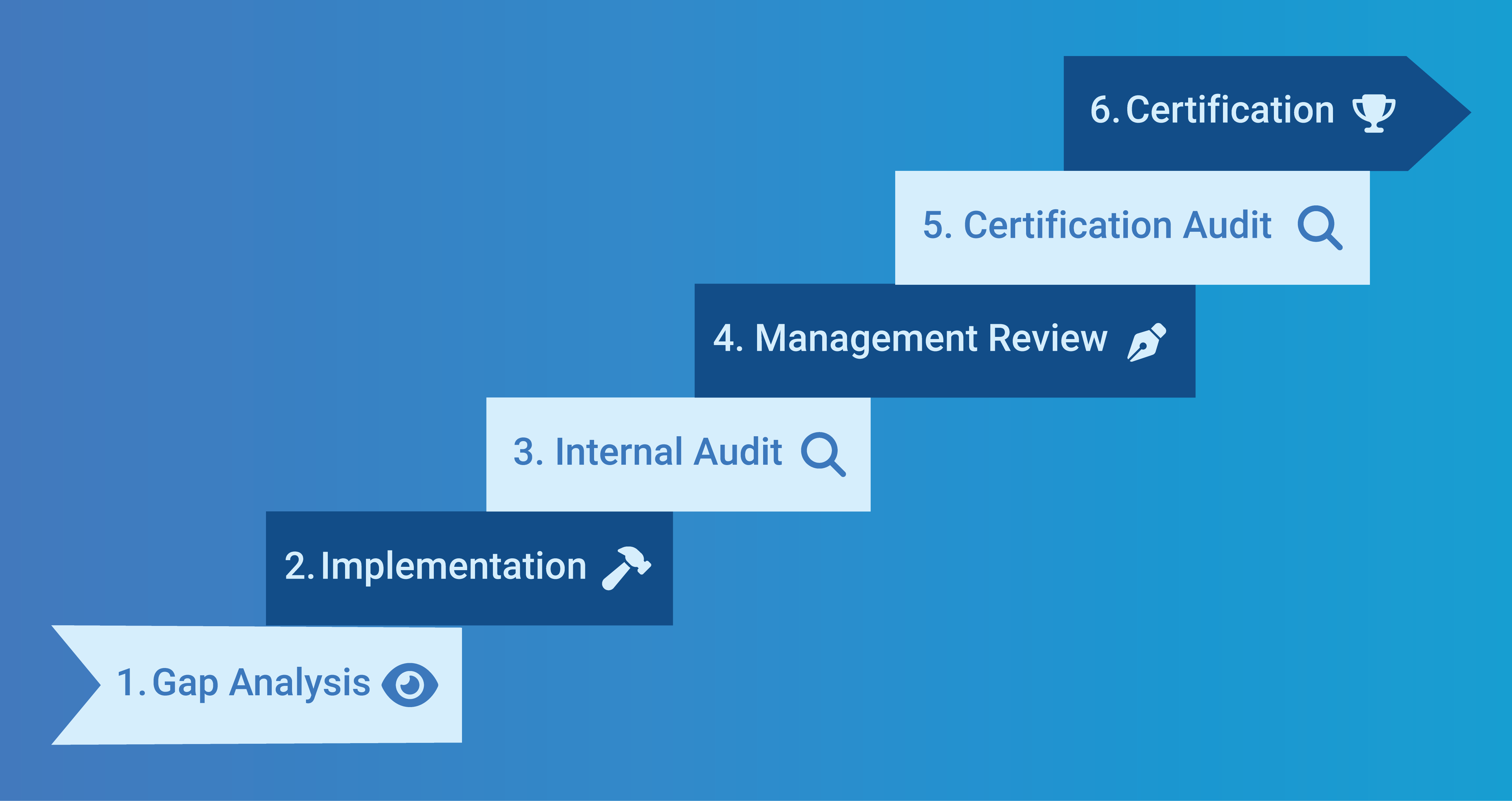
ISO 27001
In this article
What is ISO 27001?
ISO 27001 is globally recognised as the standard for managing information security. This guideline provides organisations with a framework for securely and systematically managing their information using an Information Security Management System (ISMS).
Is ISO 27001 mandatory?
While the ISO 27001 standard is globally recognised and offers numerous benefits, it is not legally obligatory for organisations to implement it or to obtain certification. However, it is important to emphasise that organisations do indeed have an obligation to properly manage their information security, especially when it comes to protecting personal data. According to the General Data Protection Regulation (GDPR), organisations must adequately secure personal data both technically and organisationally. Here, the implementation of ISO 27001 can provide an effective guideline to ensure that your company’s information security is at a high level.
Benefits of ISO 27001
Nonetheless, obtaining an ISO 27001 certification can yield significant benefits. It demonstrates to customers, partners, and other stakeholders that an organisation is serious about information security. This can also support compliance with other legal and regulatory requirements, such as the GDPR in the European Union. Moreover, many sector-specific security standards, such as the BIO and NEN 7510 (for the healthcare sector), are based on ISO 27001, making this standard a solid foundation for effective information security within these sectors.
In certain situations, it may even be a requirement to be ISO 27001 certified for business interactions. For instance, some organisations may require their suppliers to be ISO 27001 certified to ensure the safety of their data.
Core Guidelines of ISO 27001
ISO 27001 provides a set of concrete guidelines that help organisations structure and strengthen their information security. Some of the key elements and guidelines of ISO 27001 include:
- Risk Assessment and Management: Identify and evaluate risks related to the confidentiality, integrity, and availability of information. Implement measures to manage and mitigate these risks.
- Information Security Policy: Develop and implement an information security policy that aligns with the objectives and context of the organisation.
- Organisation of Information Security: Define responsibilities and roles within the organisation to ensure information security.
- Human Resource Security: Ensure that employees and contractors are aware of their responsibilities in terms of information security, both during their tenure and upon termination or change of employment.
- Asset Management: Identify and classify information assets and ensure appropriate protection measures are in place.
- Access Control: Manage access to information and information systems to ensure that only authorised individuals have access.
- Cryptography: Use cryptographic measures to ensure the confidentiality and integrity of information.
- Physical and Environmental Security: Protect physical locations and equipment from unauthorised access, damage, and interference.
- Operational Security: Manage operational processes and procedures to ensure the security of information in networks and information systems.
- Communications Security: Protect information in networks and during transfer, both internally and externally.
- System Acquisition, Development, and Maintenance: Ensure information security is an integral part of information systems, including development and enhancement processes.
- Supplier Relationships: Manage risks related to access to organisational assets by suppliers.
- Information Security Incident Management: Develop and implement processes for the timely identification, assessment, and management of information security incidents.
- Information Security Continuity: Ensure the ongoing availability of information and information systems, even during and after an emergency or disruption.
- Compliance: Ensure the organisation complies with all legal, regulatory, and contractual requirements concerning information security.
ISO 27001 also requires a continuous process of assessment, maintenance, and improvement of the Information Security Management System (ISMS) to remain effective in the changing landscape of information security risks and threats.

ISO 27001 Certification
When an organisation meets the guidelines of ISO 27001, it can obtain certification demonstrating that its Information Security Management System (ISMS) is in compliance with this internationally recognised standard. Achieving an ISO 27001 certification is a significant process that requires a strong commitment to continuously improving information security.
The process to become certified typically involves the following steps:
- Gap Analysis: Firstly, the organisation assesses its current information security practices compared to the requirements of ISO 27001. This helps identify areas that need improvement.
- Implementation: The organisation implements the required processes, procedures, and controls to meet the standards of ISO 27001. This includes establishing an information security policy, conducting risk assessments, and implementing relevant security measures.
- Internal Audit: An internal audit is conducted to verify that the implemented processes and controls are effective and in compliance with the standard.
- Management Review: Senior management reviews the ISMS to ensure it remains appropriate, adequate, and effective in light of organisational objectives.
- Certification Audit: An independent certification body conducts an audit to confirm that the organisation meets all the requirements of ISO 27001. This audit usually consists of two phases: an initial review to check if the organisation is ready for certification, followed by a more detailed evaluation of the ISMS.
- Certification: After a successful audit, the organisation receives an ISO 27001 certificate, demonstrating that its ISMS complies with the standard.
The certification is not only a proof of compliance but also serves as a powerful tool to gain the trust of customers, partners, and stakeholders, as it shows that the organisation is serious about protecting information and data. It’s important to note that ISO 27001 certification requires maintenance and regular reassessment to retain its validity, as it demands ongoing commitment to information security. At Tools4ever, we are proud of our own ISO 27001 certification and continuously strive to renew and maintain this certification annually.
ISO 27001 Checklist
According to ISO 27001, it is essential to carefully manage user identification and their access rights. This international standard emphasises the importance of strict access control, limiting access to corporate information and systems to only those individuals who need it. An effective Identity and Access Management (IAM) system can make a valuable contribution to this process. Curious about the details? Our whitepaper provides a comprehensive analysis of how identity management contributes to meeting key aspects of the ISO 27001 standard.
ISO 27001 is internationally recognized as the benchmark for information security management. This standard provides organizations with a framework for structured and secure handling of their information through an Information Security Management System (ISMS). This versatile standard is applied in various industries, including government agencies through the Baseline Information Security Government (BIO) and in healthcare with the NEN 7510 standard.
It is not mandatory to adhere to ISO 27001. However, compliance with the GDPR is mandatory, and it stipulates that the information security of personal data must be well managed.
Achieving an ISO 27001 certification confirms that an organization takes information security seriously, which builds trust with customers and partners. It also helps in complying with regulations such as the GDPR. ISO 27001 serves as the foundation for sector-specific standards, such as the BIO and NEN 7510. For some business relationships, ISO 27001 certification might even be a requirement to ensure data security.